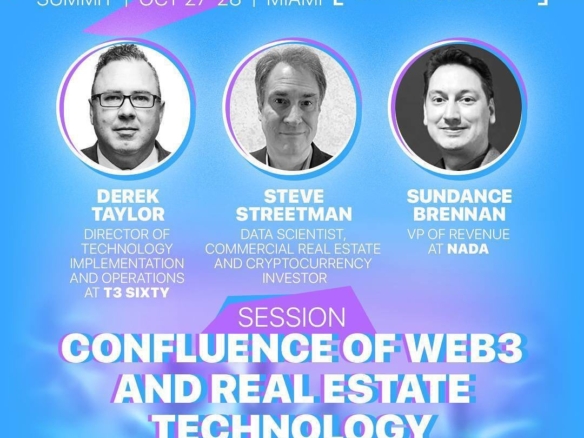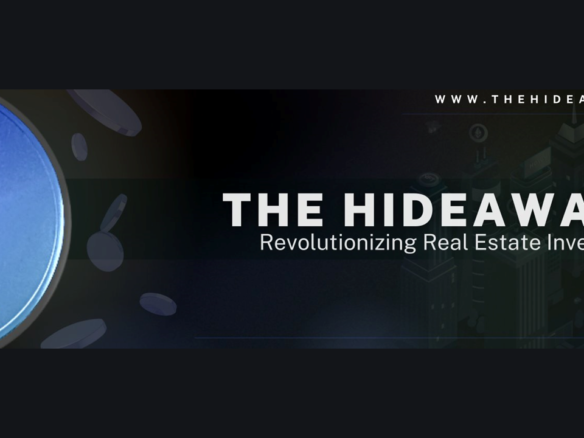In the online world, NFT real estate already exists, in which you can buy, sell, and own a piece of the metaverse and earn income from it. Meanwhile, in the real world, NFT is also changing the real estate industry through tokenizing physical properties, from there, creating NFTs that represent them (this is an example of an asset-backed NFT), and offering dramatic benefits to real estate owners and investors.
In order to identify the opportunities presented by the new technology, we should all start by considering the current challenges the industry faces. The traditional real estate market has several problems such as lengthy and complicated processes, limited access to investors, low liquidity, and an absence of transparency. Blockchain technology is one of the most exciting technologies of our time because it transforms how information is stored, shared, and owned. Then by establishing traceability, it becomes easier to track and sell the assets, solving the above problems. Now, let’s explore how.
Smart contracts replacing paper contracts
Smart contracts are digital contracts stored on a blockchain that is automatically executed when predetermined terms and conditions are met.
When a real estate seller and buyer enter a smart contract, the following happens:
Two people may decide to hire a third party to create the contract after they have settled on the details of the agreement. The creator specifies the conditions for triggering the smart contract and adds it to a blockchain. An upload of a smart contract onto a blockchain results in a copy of the contract being sent to every node, so hackers cannot alter the terms of the contract. The blockchain would also restore a change, if any, immediately in the case of hacking.
In addition, if a condition is met, the smart contract will execute an action. Oracles are programs that provide external data to smart contracts that operate on blockchain technology. They pull real-time data from places like the stock exchange or an Internet of Things (IoT) device and upload it onto the blockchain, making sure that smart contracts can obtain all the data they need. These data are then used by smart contracts to make decisions.
Proprietary technology has been developed that includes a legal framework and allows NFTs to be a substitute for property ownership, enabling purchase records to be tacked onto the blockchain alongside any legal documents. In these systems, buyer and seller information is registered with triple-ledger accounting, which secures signatures from both parties. Instead of individuals, automated workflows handle financial decisions. Smart contracts serve as gatekeepers to monitor inflows and outflows of money and adjust to market fluctuations. As such, even mortgages can be handled rapidly and smoothly.
Streamline transactions
Property transfers can be a hassle when investing in real estate. It currently takes a significant amount of paperwork to buy a property or open an equity line of credit. The average real estate deal takes 2-3 months or more before a contract is signed. NFTs enable buyers to acquire ownership of a real estate property in minutes, at lower transaction costs, with immediate benefit to owners. Moreover, since blockchain records everything publicly, buyers can view the deed, the operating income, and tenant details, and change ownership instantly. The outcome of that is not only convenience but also better transparency without intermediaries and gives real estate investors and business owners more control.
Fractional ownership for financing and investing
NFT financing greatly increases asset liquidity which is extremely valuable for investors these days. A property may be fractionally owned or financed in the NFT realm.
Instead of having a token representing the whole property, the homeowner can sell parts of his property to several investors via multiple tokens on the blockchain, and all the investors can receive a regular rental income holding a token (and based on the percentage of ownership in the digital record). Imagine a property is a family asset that the ownership is being split among a few family members. In case one of them wishes to liquidate their portion for an emergency, they could sell or transfer their token easily without waiting on the consent of everyone else and affect others’ ownership of the property.
As a fractional buyer, you can own a property you could not otherwise afford and even profit from its appreciation. This new model to acquire real estate portfolios is now available for people with a diverse range of income levels, reducing the entry capital requirements for the industry.
On the other hand, NFT mortgages are similar to fractional ownership: the NFT purchase can as well represent a fractional debt, and holders of the NFTs would receive repayments according to how much was lent. As a possible alternative to banks, these owners can use the token in a future real estate DeFi app for equity extraction.
Becoming mainstream?
A perfect world of reNFTworld would enable anyone to invest in real estate without a plethora of middlemen, large upfront capital investments, or unending legal barriers. According to ButterflyMX, $690 million in real estate was tokenized in 2020, skyrocketing to $14.3 billion in 2021. It is obvious that the activity has increased, but there is still a long way to go and so much potential left to reach the mainstream, which will require some years.
(i) Getting the right help, and being prepared for regulations to change.
Involving in real estate NFT often takes some research and crucially, engages a legal expert who has considerable experience with blockchain technology to assist in the process. Further, as NFT financing becomes more popular, governments worldwide are catching up on regulations at a fast pace, so it is critical to stay on top of the evolving laws. As one example, the Securities and Futures Commission (SFC) in Hong Kong announced in early June that some NFTs that are fractionalized or structured in a way that is comparable to securities or interests will require licensing.
(ii) Public education takes time until the Millenials and Gen Z becomes the dominant players in the market.
First, people have to thoroughly understand what is NFT, then they will have to fully see its application of it in real estate transactions. We can tell by the sound of this that this is going to be hard work when the majority of the world still views it as a jpeg and a scam. Nevertheless, commercial real estate is owned mostly by older generations. It goes without saying that they are more reluctant to adapt to new technology. The bright side is that the younger generations of potential buyers, that have grown up with the internet, are accustomed to buying real estate using DeFi and cryptocurrency, and may have very little difficulty making the transition. They represent the new, powerful brand of investors who are emerging and are willing to take big risks for greater gains in the future.
Original Article :
https://www.verdantnft.com/all-articles/renft-the-potential-of-real-estate-nft
Author: Aileen Chan



